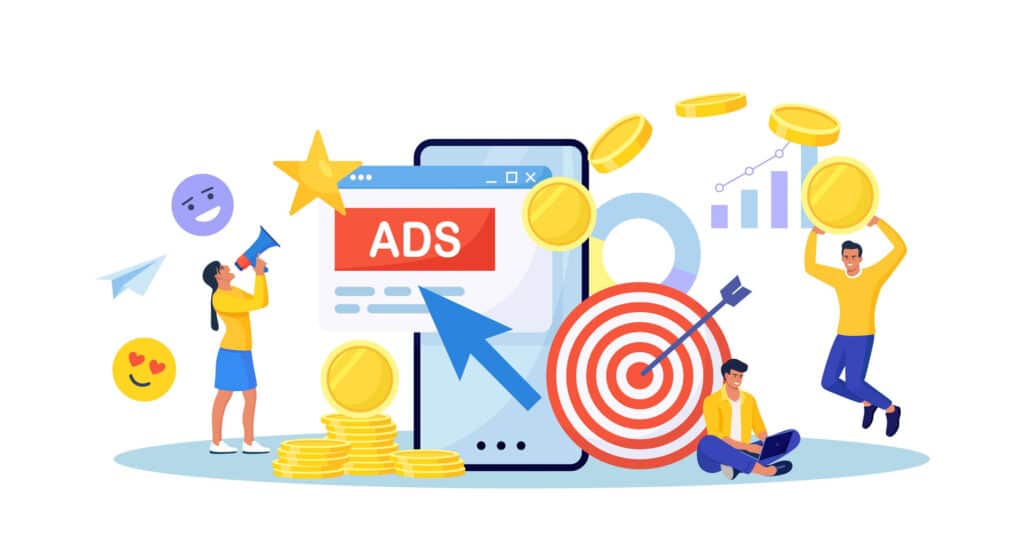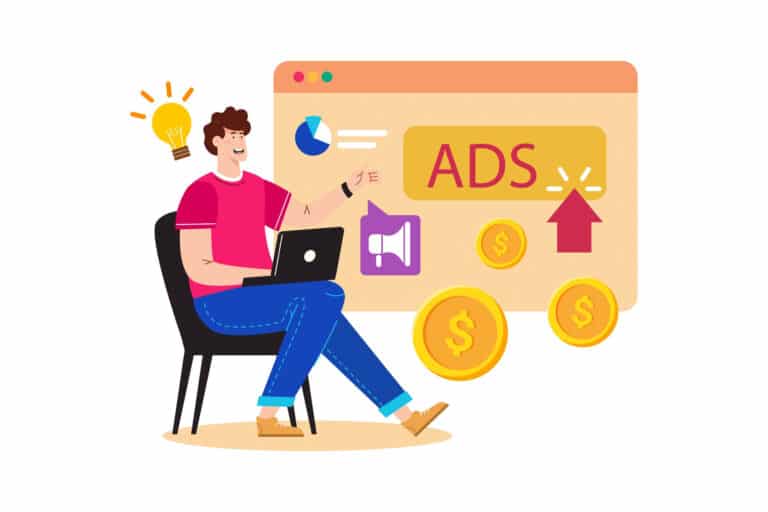Businesses frequently struggle with a critical choice regarding increasing website traffic: should they spend money on organic search, paid search, or a combination of the two? There isn’t a single, universal solution. Your objectives, financial constraints, schedule, and sector all play a role. Let’s examine the distinctions between organic and sponsored search, their advantages, and how to choose the best approach for your company.
What Is Paid Search?
Buying ad spaces on search engine results pages (SERPs) is paid search or pay-per-click (PPC) advertising. These advertisements are identified as “Sponsored” or “Ads” and appear above or below organic results.
Benefits of Paid Search:
- Instant Results: As soon as the campaign goes live, ads can increase traffic and conversions.
- Highly Targeted: Enables you to focus on particular demographics, devices, locations, keywords, and more.
- Visibility: Ensures your brand appears at the top of search engine results pages, even in competitive niches.
- Scalability: Budgets and bids can be changed based on performance.
- Control: You can optimise campaigns in real-time to improve ROI.
Challenges of Paid Search:
- Cost: Depending on your sector, keywords might be pricey, particularly for highly competitive ones.
- Temporary: The traffic ceases when you stop making payments.
- Learning Curve: Proficiency with platforms such as Google Ads is necessary for effective PPC management.
What Is Organic Search?
Unpaid listings that show up on searches according to how relevant they are to the user’s query are referred to as organic searches. Search Engine Optimisation (SEO) is the process of making your website more visible in organic search results.
Benefits of Organic Search:
- Cost-Effective: Although SEO costs money and time, the traffic is free.
- Long-Term Results: With consistent upkeep, a well-optimised website can sustain rankings over time.
- Credibility: Compared to sponsored advertisements, users tend to trust organic results more.
- Wide Reach: Organic approaches can target a range of queries, including transactional and informational ones.
Challenges of Organic Search:
- Time-intensive: It frequently takes months for SEO results to become apparent.
- Algorithm Updates: Regular algorithm updates by search engines may affect rankings.
- Competitive: It could take a lot of work and experience to rank highly competitive
Comparing Paid and Organic Search
Feature Paid Search | Organic Search | |
|---|---|---|
Cost | Pay-Per-Click | Free Clicks (investment in SEO) |
Speed | Immediate | Long-term |
Trust | Lower (“Ad” Label) | Higher (perceived credibility) |
Control | High (bids, targeting, timing) | Medium (based on algorithms) |
Sustainability | Stops when budget runs out | Ongoing maintenance |
Best For | Quick results, sales, events | Brand building, sustained traffic |
When to Use Paid Search
• Promotions: Perfect for instant exposure during sales, limited-time promotions, or product introductions.
• Highly Competitive Markets: Guarantees that your company shows up on the first page of search engine results.
• Specific Targeting: It’s crucial to contact specialised audiences.
• Testing: Excellent for evaluating messages and keywords before making a long-term SEO commitment.
When to Focus on Organic Search
- Budget Restriction: If you wish to increase visitors without continuously spending money on ads.
- Content Marketing: To build authority and rank for informational queries.
- Long-Term Strategy: For companies hoping to gradually increase steady traffic.
- Local Visibility: For physical companies that depend on local searches.
Finding the Right Balance
Paid and organic search are the most effective combo for the majority of businesses.
Organic search creates a solid basis for long-term success, while paid search gives fast rewards. Think about:
- Budget: How much can you set aside to obtain results right away
- Timeline: Can you commit to a long-term plan, or do you require results right away?
- Objectives: Is education, brand exposure, or conversions your top priority?
- Industry: Do your rivals have significant PPC or SEO budgets?
Final Thoughts
Paid and organic search have different functions and can work well together, so neither is fundamentally superior. You may maximise your online visibility and generate results by coordinating your strategy with your audience’s demands and business goals.
Would you prefer professional guidance catered to your requirements? Get in touch with us right now, and we’ll assist you in creating the ideal search plan for your company.






